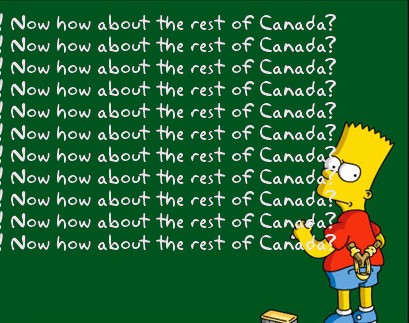
 The Ontario Ministry of Education is embarking on a pilot program in financial literacy that will see Grade 10 students across the province take a mandatory course in all things money-related and addressing topics such as budgeting, taxes and mortgages.
The Ontario Ministry of Education is embarking on a pilot program in financial literacy that will see Grade 10 students across the province take a mandatory course in all things money-related and addressing topics such as budgeting, taxes and mortgages.
The move comes in response to an online petition launched last fall and supported by 10 Toronto District School Board trustees. The petition, fronted by the youth advocacy group Toronto Youth Cabinet, calls on the government to provide learning sessions in financial issues, seen to be crucial for developing independent, contributing citizens.
“That exposure to financial literacy, from both an immediate money management perspective to long-term planning in terms of thinking about pensions, mutual funds, investments, property ownership, especially in our city, adds tremendous value,” said TDSB trusteee, Parthi Kandavel to MetroNews.
The new initiative will be finalized over upcoming weeks, says Ministry of Education spokesperson Richard Francella, who revealed that a select group of educators from across the province will try out the learning module aimed at 15- and 16-year-olds.
Prakesh Amarasooriya of the Toronto Youth Council sees the addition of a learning module to the current career studies course as “a good fit.”
“We know it’s very difficult to add a new course to the curriculum, so we wanted to find the path of least resistance,” said Amarasooriya to the CBC. “If you can’t manage your money, you can’t have a successful career. We think those things are important to become an adult and we think that’s what school should prepare you to become.”
Across the country, financial literacy is found in various guises within almost all provincial education programs. A report prepared last year for TD Bank Group by the Canadian Foundation for Economic Education found that financial education is currently being taught mostly in Grades 10, 11 and 12 across Canada, with less emphasis on incorporating concepts of financial literacy in earlier grades.
In Alberta, the province is in the midst of a six-year overhaul of its education system, one which will involve revamping curricula for all grades and subject areas. Speaking last year on the ambitious review, Education Minister David Eggen made a point of highlighting financial literacy as one of the topics to be developed. “The world is changing,” said Eggen to the CBC. “We know that the 21st century career is involving using critical thinking skills to be able to process information, to access it and make evaluations on those higher levels.”
National Financial Literacy Leader Jane Rooney, appointed in April 2014, led a series of consultations across the country during her first year to help devise a national strategy on helping people to manage their money, plan for their future and avoid financial abuse. Rooney said that a central piece of the puzzle is getting out the message to children about the importance of financial literacy and has seen the topic taught in a cross-curriculum approach in various provinces, for example, with some boards of education incorporating financial literacy skills development within the mathematics curriculum.
“[School boards] believe financial literacy is an essential life skill, so you get money concepts in all your subjects,” Rooney said.
Leave a Reply
You must be logged in to post a comment.




 Share
Share Tweet
Tweet Share
Share




Comment